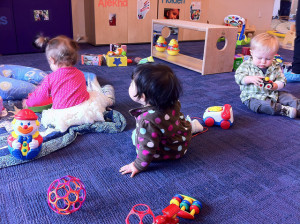
According to an article from The Telegraph, a House of Lords committee is questioning whether free childcare is good enough to improve children’s chances in life. The committee says more should be done to promote home learning.
All three and four-year olds in England receive 15 hours of free childcare per week in state nurseries. However most parents also rely on private nurseries and day-care centers. The committee found that “parents using private nurseries are charged more to make up the shortfall” even as “their children are often receiving a lower standard of care from less well-qualified staff.”
There is an “inherent tension” between wanting to make employment accessible to parents by offering child-care services while also wanting children to learn and develop. Cheap child-care options might make employment opportunities more accessible but the trade-off is that cheap also means lower quality education for children.
Faced with this challenge of choosing between parental employment or high quality early education, the committee pointed to home learning as one possible solution. The committee called for parents to provide support at home and to be engaged in their children’s development rather than relying on nurseries.
“Early education is not a magic bullet in relation to closing the attainment gap. It should be considered alongside other interventions . . . The role of the home learning environment is critical in a child’s development.â€
To read more about the power of parental engagement in early education, check out this free ebook by the OECD: PISA Let’s Read Them a Story! The Parent Factor in Education (which you can also access as a PDF doc. by clicking here.)
Check out my series of four blog posts on the power of parental engagement, relevant research, tips, and a personal story.
You can also read my Parental Engagement collection of blog posts. Each topical series explores parental engagement in a particular subject matter. The topics include civic engagement, digital citizenship, generational learning, history, math, and reading.